Book review: Muhammed, A Prophet For Our Time
by Karen Armstrong
★★★★★
In 1991, Karen published a biography of Muhammed, the founder of Islam. In 2006, she published this updated biography, hoping to focus more on his life and teachings that contradict the image of Muslim extremism, so that we Americans could put September 11 behind us and recognize Islam as a religion of peace. I haven’t read the first book, but I definitely enjoyed the second.
This is not the story of Islam or an interpretation of its scriptures. It is just a sympathetic biography of its founder. While Karen gives us both the dirt and the glory, she manages to put Mohammed’s story in its societal setting so that we can grasp his original teachings and decisions.
Mohammed’s laws, for example, were designed for a small, struggling community, never for the vast empire that succeeded him. His jihad, which does not mean “holy war” but which means “struggle,” was a tireless campaign against greed, injustice, and arrogance.
Arabs in Mohammed’s time did not feel it was necessary to convert to Judaism or Christianity, because they believed that they were already members of the Abrahamic family. In fact, the idea of conversion from one faith to another was alien. Pluralism was the more natural belief, and Muhammed embraced pluralism. A verse often quoted to prove Islamic exclusive beliefs actually means just the opposite:
“For if one goes in search of a religion other than islam unto God, it will never be accepted from him, and in the life to come, he shall be among the lost.”
Of course, Muhammed did not call his religion “islam”; the word simply meant self-surrender, and had nothing to do with a particular denomination or belief. In its original context, the teaching meant just the opposite of exclusivism. Muhammed hated sectarian quarrels, and was offended by the idea of a “chosen people.”
But Muhammed did believe reform was necessary. He despised the suppression of Arab women, and he could not condone any caste which separated those with money from those without. He personally gave a large percentage of his earnings to the poor, and expected the same selflessness from his little band of followers. All such kindnesses would be rewarded in paradise, he promised.
Does that mean the stories of Muhammed’s wars and raiding expeditions are rumors? No, and here Karen shows a little too much sympathy, as she explains the cultural expectations. A clan could hardly support itself without raiding, she explains! Stories of Muhammed’s harem are juicy as well. Nevertheless, this appears to be an honest portrait of a complex man who tried mightily to reform his little area of the world for the better. Highly recommended.

Book review: Sunday Morning Stickup
by David Lee
★★★
It is written, My house shall be called the house of prayer; but ye have made it a den of thieves. –Matthew 21:13
This book is a passionate plea to quit supporting a prosperity gospel. Tithing is no longer scriptural, and your tithes aren’t used in a scriptural manner anyway. David Lee wrote the book “out of obedience to a mandate from God on my life,” and I can’t emphasize the word “passionate” enough. David has had it with misuse of money. He misses the good old days of revivals and cozy corner churches, not megachurches and Rolexes. Man, what power the church had back then, when the Spirit ruled the house! REAL laying on hands, REAL healings. Thank you, Jesus!
The downside of this passion is that it manifests itself in condescending reader participation (exercises and instructions and pleas to read the book over and over), and David sometimes comes across as preachy or as a bit of an alarmist. So the book’s atmosphere didn’t really gel with me.
Yet the topics were worth reading. The New Testament shows no evidence whatsoever of tithing, and in fact, Paul boasted that he provided the gospel without pay, and supported himself by working on the side. Paul, of course, had no church building. Moreover, tithing in the Old Testament wasn’t about money; it was about goods, which would feed the priests and the hungry. That doesn’t mean we shouldn’t give freely of our time, money and goods! It just means obligatory, guilt-inducing tithing no longer has a place.
So what changed from the Old Testament to the New Testament? Jesus. Tithing in the O.T. is symbolic of Jesus, who would offer his life on the cross as a living tithe. See Hebrews chapters 7 through 10. An interesting theology, which I hadn’t considered before.
So if you don’t find the style off-putting, read the book and share in David’s indignation.

Book review: God or Godless?
by John W. Loftus and Randal Rauser
★★★★★
Definitely a contender for The Dubious Disciple’s top-10 religion books of 2013. Even the cover is magnificent.
John, an atheist, goes head-to-head with Randal, a Christian, on twenty controversial topics. Each topic is covered in debate fashion, with the contestants presenting their arguments, counter-arguments, and closing statements. It’s friendly for the most part, but the gloves do come off in a couple places.
Two very different philosophies shine through. Rauser’s penchant for imagination and storytelling contrasts John’s trust in cold, hard probability. It’s classic, almost stereotyped … great stuff.
For my own amusement, I rated and tallied up the score. My scoring was 6-4, with 10 ties, in favor of….
Wait a minute. If there’s one single debate that is critical, that reaches down to the core of Christianity, it’s #19. Did Jesus rise from the dead. This is also head-and-shoulders the most interesting of the twenty debates. And the winner on this one is … unfortunately, nobody. A push. No decision.
Another way to choose the winner is to read the book’s concluding remarks. Rauser’s passionate plea for meaning versus Loftus’s argument that Christianity has hardly risen to the surface above all the rest of the world’s religions to earn a debate against atheism. It was such a fitting close to the book that I couldn’t help awarding both contestants a win.
Ah, well, I guess that’s why I’m known as an “agnostic Christian.” Thanks, John and Randal, for a great time.

Book review: Prodigal Christianity
by David E. Fitch and Geoff Holsclaw
★★★★★
While this book was more conservative than I expected, it was also more thought-provoking. Prodigal Christianity compares the journey of Jesus into our world to the prodigal son (obviously a little different take on that parable) and asks if our own Christianity is prodigal enough. The authors are talking about the missional frontier, and how we are spreading the Gospel. To become Christian is to learn to become prodigal.
One quote on page 69 helped set the tone for me: “New Testament scholar E.G. Selwyn notes that the term for witness (marturian) is used six times more frequently in the New Testament than the term for preaching (kerygma) when discussing the gospel. In other words, New Testament writers more easily thought of the gospel being carried into the world through the process of witness rather than by any singular act of pronouncing or proclaiming.”
But how do we witness? Toward the end of the book, we read: “We do not go to our town councils and dictate what we think should be done based on our interpretation of the Bible. We must inhabit a place and listen. We must come to know people as friends. We must presume we have much to learn about God through them. And then God will use our joining in with the neighborhood to bring fresh eyes and fresh words and Christ’s authority against oppression and evil.”
The book’s humble introduction isn’t really indicative of what you’ll find inside. This really is intelligent writing and probing discussion. The experiences of the authors, planting their little Life of the Vine church near Chicago, are relevant and eye-opening. Which approach is best in a post-Christendom culture no longer dominated by guilt: presenting a (personal) “plan of salvation” or a (communal) “story of salvation?” Does a substitutionary view of atonement trivialize the Gospel, leading Christians to become preoccupied with the afterlife and treating day-to-day living as an afterthought? What does the Eucharist really mean in today’s world, in terms of welcoming outcasts to the dinner table?
As a liberal Christian seeking common ground with my more conservative brethren, this is a book I can endorse. Luckily, it’s also an engaging read.

Book review: Jesus Wants To Save Christians
by Rob Bell and Don Golden
★★★★★
Ouch. Several months ago, Harper One sent me a short collection of Rob Bell reprints to review. I slowly worked my way through them, enjoying each one, and somehow left this one sitting on the shelves. Too many other obligations. I just now picked it up, and read it in one sitting.
I couldn’t put it down. Forget Velvet Elvis. Forget Love Wins. This 180-page sermon, this little obscure work, is for Bible groupies Bell’s real masterpiece. It’s definitely my new favorite, so maybe that says something about co-author Don Golden, a name I hadn’t come across before.
From the Exodus, to the Temple construction, to the Eucharist, Bell and Golden reveal a surprising thread that weaves its way throughout the Bible. This “new perspective ” opens up what the Bible means to Americans today, living in the world’s most powerful nation, boasting the greatest military, yet holding the strongest responsibility for the world’s impoverished. America is an empire, and the Bible has a lot to say about empires.
“I hope you see that there is a common humanity we share with everybody alive today, and everybody who has come before us,” writes Bell in the preface. This little book accomplishes just that.

Book review: The Essence of Religions
by Christopher Coppes
★★★★
Here’s an interesting claim. The core of all the major religions, Coppes seems to posit, can be discovered hiding in the commonality of Near Death Experiences (NDE’s). Sometimes, when a person recovers from death (or near death), he or she recalls an ineffable experience of an afterlife. Some see a breathtaking light, some participate in a sort of life-review, most are irrevocably changed. Familiar themes of this afterlife include:
- No judgment.
- Interconnectedness with all living beings.
- Unconditional love, as if we are bathed in the Light.
- Everyone seems equally important, often with their own task to do.
Coppes likes the phrase “Unity Universe” to describe this connectedness, and discovers it as common teaching throughout our religions. He spends a chapter each on Hinduism (which teaches that while many gods are worshipped, there is but One Entity, which is everywhere and everything), Buddhism (the ultimate human goal is nirvana, with its lack of self, which sounds a lot like what NDEers describe), Judaism (with its teaching that life is the “breath of God”), Christianity (with its emphasis on perfect Love), and finally Islam (which has an interesting afterlife concept very similar to the life-review NDEers sometimes undergo).
Coppes is both critical and appreciative of all these belief systems, but mostly just wants to steer us away from the fringe beliefs to the wheel of the hub, where we find common ground that looks amazingly like what NDEers describe. A fascinating topic, worth exploring, and this book provides a ground-breaker.

Book review: Navigating Revelation
by Eugene E. Lemcio
★★★★
Filled not with answers but with questions, Lemcio’s “charts for the voyage” do little to illuminate. I therefore found its promise of a “pedagogical aid” to fall a little short.
What the book does provide, however, is page after page of interesting study foundations, that can lead to some interesting research topics. If you are a serious student of Revelation and wish to work from a concise, visual picture of a few of the Apocalypse’s interrelations and derivations from other scripture, this is a great starting point. For that purpose, I definitely recommend it. Some interesting chart titles (with little commentary) to give you an idea of the book’s content:
Revelation 6 & Isaiah 13: The Shaking of the Foundations
Revelation 8:1-5 & 1 Kings 18:16-40 (comparing Elijah’s contest with Baal to the 7th seal of Revelation)
Revelation 12: Satan’s Fall in Jewish Apocalyptic (comparing to Isaiah, Ezekiel, 1 and 2 Enoch, and Life of Adam & Eve)
Revelation 12 & Matthew 1-2 (Herod’s slaughter of the innocents and the dragon myth)

Book review: Chasing an Elusive God
by Ray Vincent
★★★★★
This is the second book by Vincent that I’ve reviewed, and I enjoyed it as much as the first. Ray writes simply and draws on a lifetime of Biblical research. His approach is an even mix of informative and entertaining without coddling.
This book tackles the personal quest for God … a quest which repeats itself throughout the Bible. When we question our origin and cosmic purpose, trying to understand who or what God is and what he wants, we’re in good company. We see the same pondering throughout our holy book, from Genesis to Revelation. When we reach different conclusions than our neighbors, we’re again in good company, for the Bible’s authors hardly reached any consensus.
So Ray’s newest book is an exploration of the themes of a very human book: the Bible. From the mystery of the divine to the quest for meaning in life to the cry of the oppressed for justice to the emotions which rule us as human recipients to the great question of life after death, Ray journeys through what the Bible has to say—and not say—as the ancients struggle to make sense of the same questions we ponder today.
Ray sees the Bible as art, not history. That is what brings life to its pages. He explains with a comparison: “Van Gogh did not set out to inform us what sunflowers look like: a photograph or a botanical drawing could tell us that. What he did was to contemplate sunflowers, to open his heart to them, and to express in his painting the feeling they gave him. Because he did this we can look at that picture today, feel something of what he felt and see sunflowers, and perhaps the whole world, in a new way. That is what great art is about.”
Likewise, we must open ourselves up to the world of the Bible, its human struggles and dreams, in order to share in its journey.
Excellent reading! I can’t wait for Ray’s next work.
(Note: You can read the prologue here)

Book review: Paradise Earth: Day Zero
by Anthony Mathenia
★★★★★
Fiction: You’re going to like this middle-aged Jehovah’s Witness with a dark secret and a dependency on cough syrup. He shares a dream of Armageddon with all faithful J/W’s, anticipating the day God rains fire on the earth and then recreates it into a paradise of eternal happiness. (Yes, the J/W’s interpret Revelation literally where it implies the resurrection will be on this earth.) Then a severe hailstorm rolls in and cataclysmic events begin to trigger. But now that the end finally seems imminent, while the faithful are holed up within their Kingdom Hall like animals in the Ark, he begins to question it all.
This is book one of what will become a trilogy, and it definitely is a page-turner. I can’t wait for the next two volumes.
I felt an immediate kinship with Mathenia and his main character because of the similarities of our religious upbringing. Both of us lay claim to what I describe as “intense” Christianianity. But while my childhood and early adulthood provides mostly wholesome memories, Paradise Earth delves into the stomach-wrenching side of overbearing religion: church correction, disfellowshipping, door-to-door evangelizing, and more. We must pardon the sensationalism, because Mathenia writes from experience, having been himself ritually shunned by family and friends as an apostate for questioning his faith. Of course, the jaded dark side makes for good storytelling, even as it’s downplayed into “normal” Bible-ordained church practice. That’s the gut-wrenching part.
Mathenia’s characters are vibrant and the storyline gripping, and you’ll even learn a little about Jehovah’s Witnesses while you’re at it … without having to read The Watchtower! Definitely recommended, with one caveat: Mathenia’s portrayal of what he considers a “cult” is less than subtle.

Book review: Exposing Myths About Christianity
by Jeffrey Burton Russell
★★★★
In general, I enjoyed this one. I hardly agreed with everything Russell wrote—probably no Christian will—but it introduced several thought-provoking topics. The subtitle is A Guide to Answering 145 Lies and Legends, and that’s what it is. 145 short discussions, under the following headings:
Christianity is Dying Out
Christianity is Destructive
Christianity is Stupid
Jesus and the Bible Have Been Shown to Be False
Christian Beliefs Have Been Shown to Be Wrong
Miracles Are Impossible
Worldviews Cant Be Evaluated
What’s New Is True
I may as well get this out of the way first: Russell comes down hard on liberal Christians, who he says dilute the message of the Bible. Guys like me are allowed to call themselves followers of Jesus, but never Christians. Oddly, the book then closes with a passionate plea to recognize and embrace truth. Eh? Mr. Russell, it was my search for Truth—my deep, hard-nosed research into the Bible, with all its warts and human touches—that turned me into a liberal. Anyway …
The word “myth” may not be quite what Russell means. His “myths” seem to fall mostly into two categories: (1) inappropriate stereotypes about Christians, and (2) misinterpretations of scripture. For example, one of the myths is that Christians hate Jews, but guess what? Some do, and they find their justification in scripture to do so. Russell’s point is that such feelings and scriptural interpretation aren’t “Christian.”
I noticed that Russell has some strange ideas about atheism, and may need help dispelling some of the “myths” he himself believes about atheists. For example, in discussing the myth that Christians need a crutch, Russell turns the tables, explaining that atheism can also be a crutch; indeed, “The most persuasive argument for atheism is its permission to do whatever we feel like doing.” Huh?
Russell loves to talk about cosmology and science. He feels the findings of science now indicate that the existence of God is more likely than not, so such topics get quite a bit of press time.
The book is bold and serves as an apologetic for Russell’s particular brand of Christianity, which makes it interesting reading. You’ll learn who really burned down the great library at Alexandria (not the Christians), what the Word of God is (not the Bible), how quickly Christians began to worship Jesus as God (immediately), and where to find heaven and hell (in a spiritual state, not in a place). 145 topics was probably too many for 350 pages, as many of the discussions left me hungering for more.

Book review: The Holy Family
by Alan Michael Wilt
★★★★★
How does one survive the loss of a daughter after outgrowing the Church? Where does one find comfort once belief in heaven has eroded?
Fiction: Martin Halsey grew up a Catholic, and retains an appreciation for ritual and church atmosphere, but can no longer believe. As an actor, Martin loves participating in the annual Christmas pageant, because he enjoys the inspiring story of Jesus. Yet he can no longer read the Bible as if it were meant to be understood literally. The book’s title, The Holy Family, refers not to Martin’s family but to Joseph, Mary and Jesus, in their “thoroughly human, earthy, and earthly presence” … the only way Martin can appreciate the holy trio.
Married now to an atheist and having raised two wonderful daughters, life is good … until tragedy strikes. Martin’s best friend is baffled at how to lend comfort, and often reminds Martin of the help that a belief in God can provide, but wisely refrains from pushing. As the Christmas pageant approaches, Martin must come to terms with his loss in his own way, with his own spiritual understanding, and without succumbing to what he considers merely a comforting fantasy.
This book is a respectful and thought-provoking peek into atheist thinking, without sacrificing an appreciation for the Bible. It’s gripping and deeply personal, one of those tales that will touch each reader in a different way. Definitely recommended.

Book review: The Almond Tree
by Michelle Cohen Corasanti
★★★★★
Arab-Israeli wars seem a never-ending reality, and Christian end-times interest in Palestine only escalates the conflict. Corasanti’s new novel provides insight into the grassroots tension in Palestine, without favoring one side over the other.
I’m reviewing this from the perspective of a religious blog, and from that viewpoint, Corasanti’s first book is definitely a five-star effort! I asked for a copy because my cozy little world is a long way from Jerusalem. I had hoped that my own book about Revelation might alleviate some of the tension from a Christian viewpoint, but in truth, I’m more of a history scholar than a present-day religion nerd. I was hoping this novel would grant me an inside view to the religious commitments and feelings of the two sides, explaining why it is so difficult for these two nations to come to terms, and the author did that well.
Book review: Exploring Faith and Reason
by Bruce Glass
★★★★★
Very good book, though it wasn’t quite what I expected. Its subtitle of The Reconciliation of Christianity and Biological Evolution led me to think that Glass intended to work his way through Genesis’s creation story and explain how each verse relates to what we understand about our evolutionary history. Not so at all; nearly the entire book is an explanation of what we know about evolution and how we know it to be true. You might say its intent is to give us permission as Christians to accept scientific findings. There really should be no doubt in our minds; says Glass:
“There is certainly a great deal more to learn about how evolution works and about how it has shaped the living world throughout history, but any doubts about whether biological evolution and speciation actually occur have long been dispelled.”
God, Glass suggests, exists outside of time. Each and every moment of time in human history and indeed all the history of our physical universe—past, present, and future—occurs simultaneously from the perspective of God. So, we do ourselves no favor by trying to understand the timeline of creation from God’s perspective. We know the universe is about 13.7 billion years old, the earth itself nearly 5 billion years old, and that life began three and a half billion years ago from a common ancestor and gradually diversified into the world we share today. Humans are a relatively late emergence on the earth, but this should not disturb us at all. From God’s outside-of-time perspective, the creation simply was and is (in a sense) instantaneous.
Free to embrace the truth of our origins, Glass leads us on a short journey of what really happened over the last four billion years, drawing from the fossil record and genetics, and from the many clues we have around us in the fields of medicine, horticulture, biogeography, and more. He addresses the objections that Creationists have to the scarcity of the fossil record, first pointing out that we can’t be too demanding of the record since only about one bone in a billion becomes fossilized, and then discussing the many transitory fossil examples we do have. As it turned out, I enjoyed the real focus of the book much more than the topic I anticipated. Glass writes plainly, explaining the facts in simple terms, so that a non-biologist can understand. His awe for God’s creation shines, even as he points out that Creationism and Intelligent Design are flawed attempts to hold to a literal reading of Genesis.
Inspiring and current, highly recommended.

Book review: On God’s Side
by Jim Wallis
★★★★
Has Christianity been derailed from serving the common good to mandating bipartisan stances? If Christian principles mean standing up for God, then in the myriad of complex political issues—from same-sex marriage to immigration reform—how do we know which side to take? Which side is God’s side?
Wallis asserts we can find God on the side of compassion. The common good. Throw out your gospels of self-help, personal enhancement, prosperity, and parochial nationalism, and instead look to the story of the Good Samaritan. Until Christianity returns to a “neighbor ethic,” it will not recover its credibility. To this end, Wallis writes a “biblical and theological defense of the common good.” Wallis is neither liberal nor conservative, and calls for both factions to meet in the middle.
I do confess, the title of the book gives me pause. A call to be “on God’s side,” as if the author speaks for God, evokes in my mind an image of a holy war. And to some extent, it is; Wallis sees this as war against a broken political system.
On that note, I would have preferred that the book was broken in two … one book about church, and another about state. But Wallis doesn’t separate the two. Says he, “If worth and equality are values derived from the belief that human beings are made in the image of God, then respecting both should be a primary task of democratic political systems.” He describes how in June of 2012 nearly 150 evangelical leaders banded together and signed the “Evangelical Statement of Principles for Immigration Reform.” Sojourners stood side by side in Washington D.C. with the Southern Baptists and Focus on the Family to draw attention to the plight of millions who have been caught up in our broken immigration system. These issues were seen as “fundamental moral issues and biblical imperatives.” The president listened and acted. Mission accomplished.
Problem is, I’m not sure Wallis grasps that our democratic system will be no less broken if it caves under the weight of organized religion. Nevertheless, if you are able to separate church and state in your mind as you read– learning about seeking the common good according to the example of Jesus, and learning also of our needed political reform–then you will find thought-provoking conversation on both fronts.
Before you read the book you might want to read Matthew 25:31-46.

Book review: The Myth of Persecution
by Candida Moss
★★★★★
Are the stories of Christian persecution during Christianity’s early years really true? Or should we recognize them as apologetic exaggeration?
Candida Moss takes a hard look at how such stories are derived, and she has high standards for what counts as persecution. Execution for merely refusing to recant one’s Christian beliefs doesn’t measure up (prosecution is not persecution, any more than prejudice is persecution). Yet she makes her point strongly that widespread, repeated persecution of Christians before the time of Constantine is no more than a myth.
There is much at stake in this discussion, because it is a common apologetic tactic to claim “proof” of Jesus’ resurrection by referring to his followers’ willingness to die for their beliefs. But what if this willingness to sacrifice for one’s principles, in the few cases where it is genuine, differs little from the principles of many other philosophers of the day? Socrates, for example, was equally willing to die for his principles.
Moss writes with intelligence and deep research as she presents her case that Christian martyrdom stories are distorted by their chroniclers, often presented with unsubtle motives. Eusibus, who played a key role in defining orthodoxy, very effectively employed martyrdom stories to further his own theological agendas.
But is there an even darker side to exaggerating the stories of our martyrs? Does an over-admiration for martyrdom promote an us-versus-them atmosphere that encourages polarization? More than a rhetorical question, Moss fears that overplaying martyrdom does Christianity a disservice. It leads us to believe persecution (perceived or real) is evidence of God’s approval. Evidence that we are the chosen ones. Maybe we should quit playing our martyr cards and instead pay a little more attention why Christians were so despised. Moss pulls no punches as she explains why Christians didn’t fit in with either Gentile or Jew.
I remember growing up with 1 Peter 4:12 in mind: “Beloved, think it not strange concerning the fiery trial which is to try you, as though some strange thing happened unto you.” Are we as Christians supposed to ignore such advice? Perhaps Moss was never teased as a child for professing Christian beliefs. Perhaps she’s simply telling us it’s time to grow up. Perhaps she’s insinuating that the reward isn’t worth the suffering. Whatever your personal experience in “carrying your cross” and “suffering for Christ,” you can bet this controversial book will provoke emotions. Moss writes bluntly, unafraid to step on a few toes. But maybe it is time to grow up.

Book review: Romance Eternelle
by Lawrence D. Miquelon
★★★
A brief story-in-a-story of a prostitute who feels drawn to church, and meets up with a Catholic priest who is going through his own crisis. More inspirational than instructional, the “romance” of the book is not between the characters, but in their new-found intimacy with God. It’s about being in love with God. The priest’s brush with divine Love so shakes him that he loses his interest in rote church ritual. His informal love story and wholehearted acceptance of a sinner among his friends is perceived by the Deacon and congregation as disrespect rather than Godliness.
After a bit of a sleepy start, I did settle in and enjoy the story. For me, the problem was that it’s written in the present tense, a play converted into a novel but still reading a bit too much like a script, which limits the creative possibilities of the writer. One does best to appreciate the story by imagining actors on a stage. Still, the plot line held my attention well.
Miquelon indicates on the back cover that the spiritual encounters contained in the story are based on actual experiences, and are inspired by the book of Hosea (plus, I sense, the Song of Songs).

Book review: An Uncertain Age
by Ulrica Hume
★★★★
A story about life on life’s terms, with all its uncertainty. I’m not really much of a fiction reader, and the spirituality of the book is probably too subtle for a religion blog, so I don’t know that it was a good fit for me, really … yet once I began reading, I had a hard time setting it aside.
This story is a quest for purpose, by a middle-aged woman who seems to have lost ties with everything and everyone that once gave life meaning. She toys with religion, on a sort of intellectual level, trying to break through the intellectual shell to the experiential. She and her new friends find themselves “seeking something that is one breath, one heartbeat, one step away,” but with different approaches.
As it turns out, the spiritual side braids with the mundaneness of life, and the two cannot be torn apart. There is sadness in the story. It soon becomes apparent that even the most imaginative author would destroy the book’s theme by trying to tidy up all its confusion by book’s end … so we are left with a sort of melancholy realism. The draw of the characters, and the bizarre connection I felt to them, leaves me shaking my head. I can’t figure out if I’m happy to have read the story or not. I suspect I’ve fallen prey to precisely the emotions Hume wanted to evoke.
Lest my late-night meandering thoughts leave the wrong impression, I want to be clear that Hume writes with intelligence and feeling. A well-written, intriguing read.

Book review: How To Be An Agnostic
by Marc Vernon
★★★★★
Mark Vernon is a former Anglican priest who flirted with atheism after leaving the church, and finally settled on a “more satisfying” compromise of agnosticism. He found atheism, with its dogmatic certainty and sometime hostility to the beliefs of others, to be no more open-minded than religion. Besides, he says, religion is not just a set of beliefs or a moral code. It is a way of seeing the world and a way of approaching what’s unknown. So, is there higher ground in the middle, halfway between theists and atheists?
Vernon is no shoulder-shrugging agnostic, self-labeled because of a confessed disinterest in contemplating the Infinite. Nor does Vernon settle for “spiritual but not religious.” That’s simply not enough. A proper agnostic doesn’t dodge the hard questions, yet leaves room for spirituality and awe. Says Vernon, “A spirituality-inclined agnostic is like being a believer to this extent: we are individuals who think that God is not a silly question, as the conviction atheist must have concluded, but rather one that our experience demands we keep asking. To put it more concisely: for us, God is not the answer, but the pressing spiritual question. But can God still be thought of as the question, in a mystery-dissolving age of science and certainty? It depends on what you mean by God.”
So this book is not a search for God, but a search for the proper question. That is How To Be An Agnostic, and Vernon does it well. He writes intelligently, philosophically, and with a deep respect for past thinkers dating back to Socrates (who gets quite a bit of press time). The book’s childish cover and title notwithstanding, this is a serious and thoughtful exploration … even a little overwhelming. I can wade through mathematical treatises, but diving too deeply into the magnificence of our creation wears me down. Still, it is this very beauty and complexity … coupled with the key question, “why is there something instead of nothing” … which stirs the spirit of a serious agnostic.
Beware: There are no answers herein. The book meanders gently into the sunset by the final page, content to exit with a few words of agnostic instruction, but without a conclusion. That is, of course, the point.

Book review: Let The Bible Be Itself
by Ray Vincent
★★★★★
O daughter of Babylon … blessed shall he be that taketh thy children and throweth them against the stones. –Psalm 137
In my book about Revelation, I suggest that this psalm may be both the most heartrending and the most disturbing passage in the Bible. Interesting that Vincent should choose it to highlight the question of how to read the Bible. What are we supposed to do with verses like this?
Vincent reminds us that much of the Bible is a cry of pain: “This psalm is in fact a very moving piece of dramatic poetry. If we were in the theater and heard someone cursing their enemy and calling on God for revenge in this kind of language, we would not ‘tut-tut’ or walk out in disgust! We would be caught up in the power of the drama, and go away saying what a good play it was. It is only the fact that the Bible has been set up as a theological and moral authority that makes this psalm a problem.”
Let the Bible be itself, Vincent suggests, and I really enjoyed his discussion. He describes briefly what to expect in the Bible, how it came to be, and the hazards of reading it as a divine instruction book. While it’s been a long time since I read the Bible as a fundamentalist, I do remember the awkwardness of trying to justify its errors, outdated morals, and claims of divinely sanctioned killing. Vincent has a knack for simple, understandable writing, bringing the Bible alive with both its warts and its beauty. Here’s an interesting observation: “If we believe God speaks through the bible, this must surely imply that God too is playful, experimental, changing and developing, even in some mysterious way self-contradictory and self-correcting—in other words, alive.”
Short book, but highly recommended.

Book review: Faitheist
by Chris Stedman
★★★★★
Oh, man, do I relate. Here is an atheist who wants to lift atheism above the polarized wars that have developed from writings of the New Atheists. While I’ve never considered myself an atheist (I’m happy with the phrase “agnostic Christian”), even if I were, I would hesitate to take the title. I don’t want to be known as someone who tears down rather than builds up. I have more in common with nonbelievers than fundamentalists, but I have never been able to swim in the waters of an online atheist forum without feeling queasy … like I just plain don’t belong. I’m not alone: so uncomfortable are many people with atheists that polls show them to be the least electable group in America.
Why? Why are atheists so distrusted? Enter Chris Stedman, a believer-turned-atheist who misses the goodness of Christianity, and feels happiest when he is joining the Church in the soup kitchen.
Yet, the “regular Joe” atheist is as misunderstood as anyone of any contrary belief system, insists Stedman. The problem is, when there is little familiarity, extremists become the face of a religious movement, and this is just as true of non-religion (atheism). The New Atheists have managed to monopolize the public discourse on atheism. They have succeeded in making atheism more publicly known, but at what cost?
The goal of the New Atheist movement is the total eradication of religion. Confront the religious, expose the idiocy of believing, and sneer it under the table. The antireligious rhetoric spewed by aggressive atheists is not a critique of theology, says Stedman. That, he could deal with on an intellectual level. Rather, such attacks are “based in a willful ignorance of what it actually means to be religious and of the way religious lives are lived, and turn religious people into a cheaply mocked caricature.” Chris tells of trying to fit in at an American Atheists gathering in New Jersey, which was “packed full of blasphemy sessions and speeches comparing religion to sexually transmitted diseases.” He recalls how “Witnessing the sheer vitriol some expressed toward the religious, I actually cried—hot, angry tears. I called friends of mine back home—atheists, no less—and recalled what I’d seen … One friend said to me: ‘You see, this is why I don’t want to call myself an atheist.’”
Today, says Stedman, he cannot recount the number of fellow atheists and agnostics who do not want to be associated with the movement. What has gone wrong? How did atheism sink to the level of polarized fundamentalism it claims to despise, and can the image be fixed?
Chris is trying. He suggests that the atheist movement should be more about what it does stand for than what it doesn’t. Energy spent disparaging what others believe (the New Atheism) is worse than wasteful; it’s toxic. There is no benefit in dehumanizing those with different metaphysical beliefs. Far more effective would be for atheists to promote constructive dialogue with the religious, treating them as intellectual equals. Atheism’s reputation can be rescued by reaching out, attempting to understand and empathize rather than bulldoze and mock. So, Stedman decided to walk the walk. He became the Assistant Humanist Chaplain at Harvard University, working in interfaith relations.
An atheist chaplain! Hee, hee! I doubt the New Atheists are amused, but I am in awe. This is a captivating, inspiring, must-read book, whether you are a believer or an atheist. Get it now.


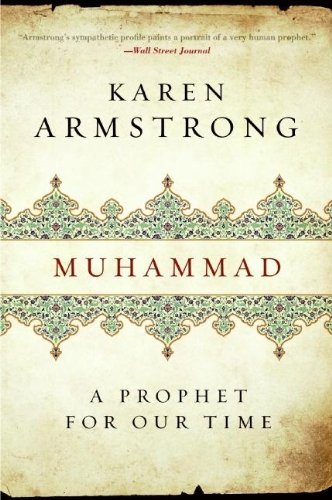
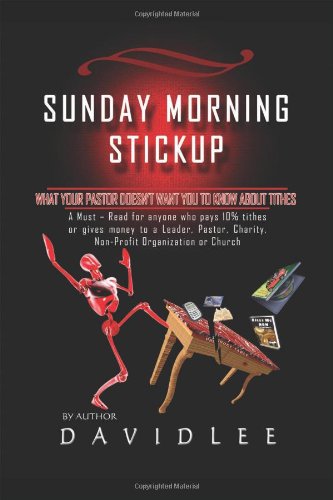
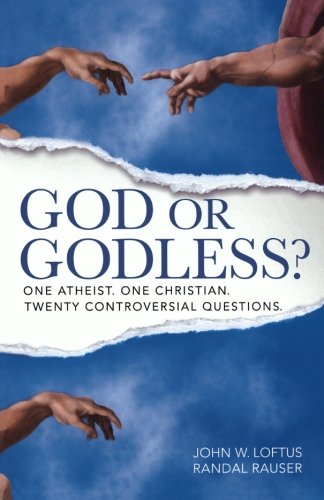
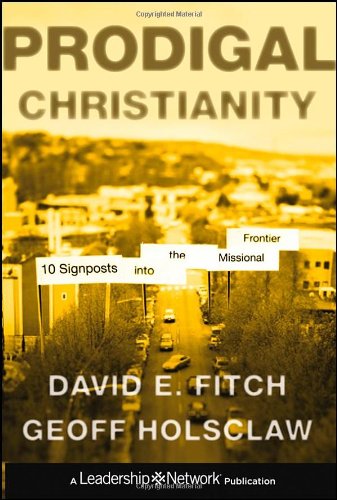
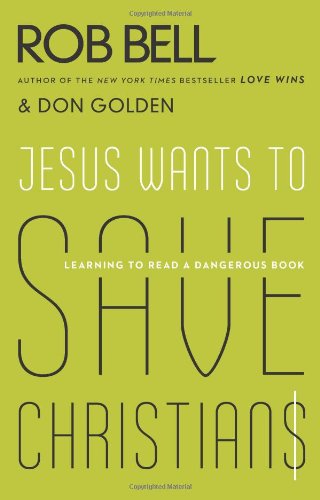
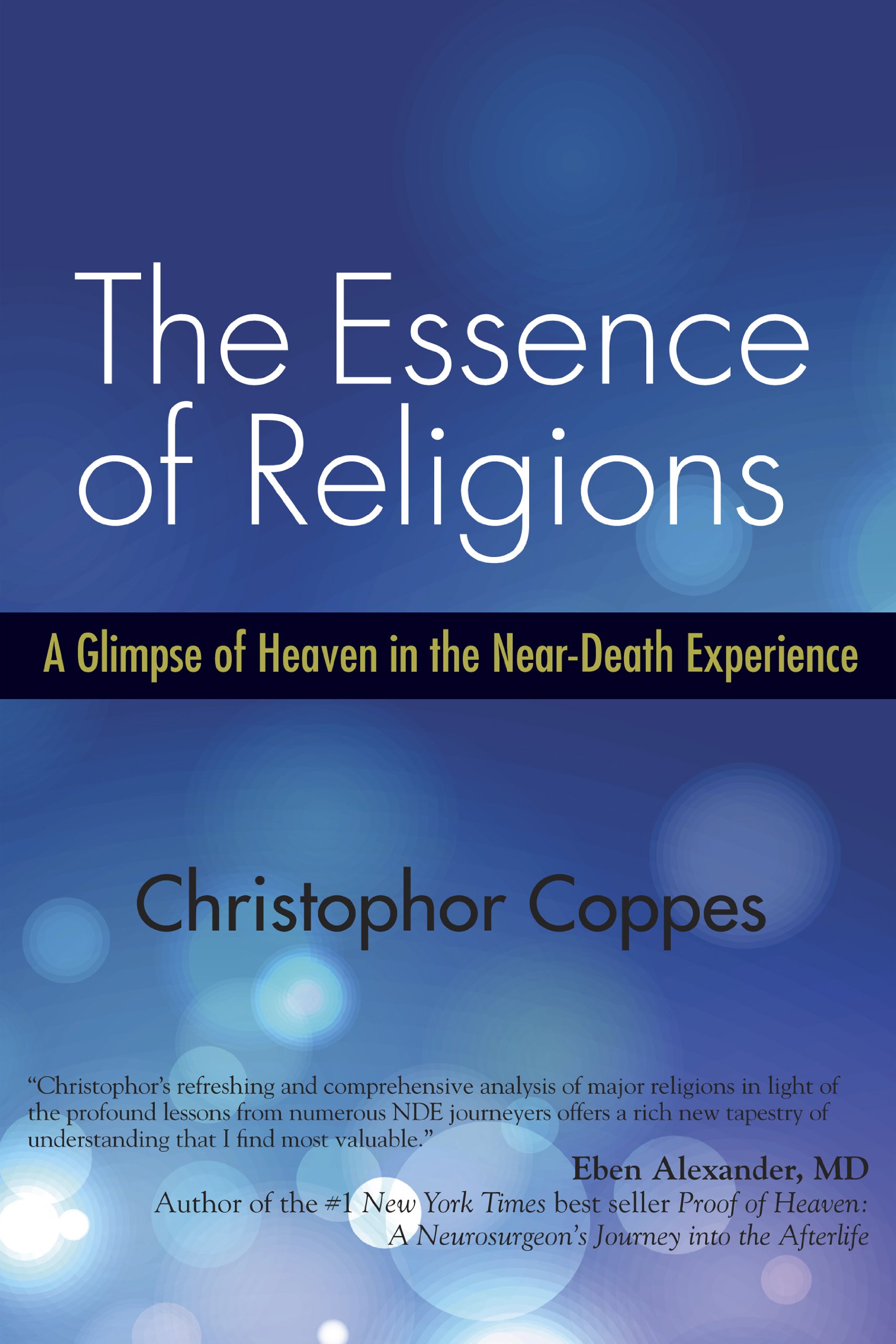

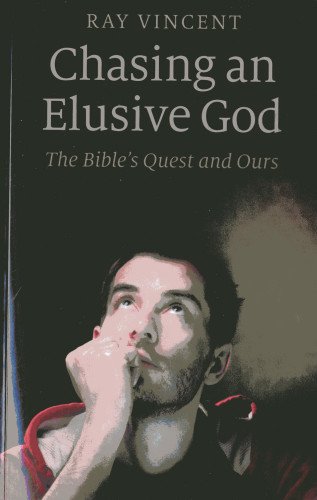

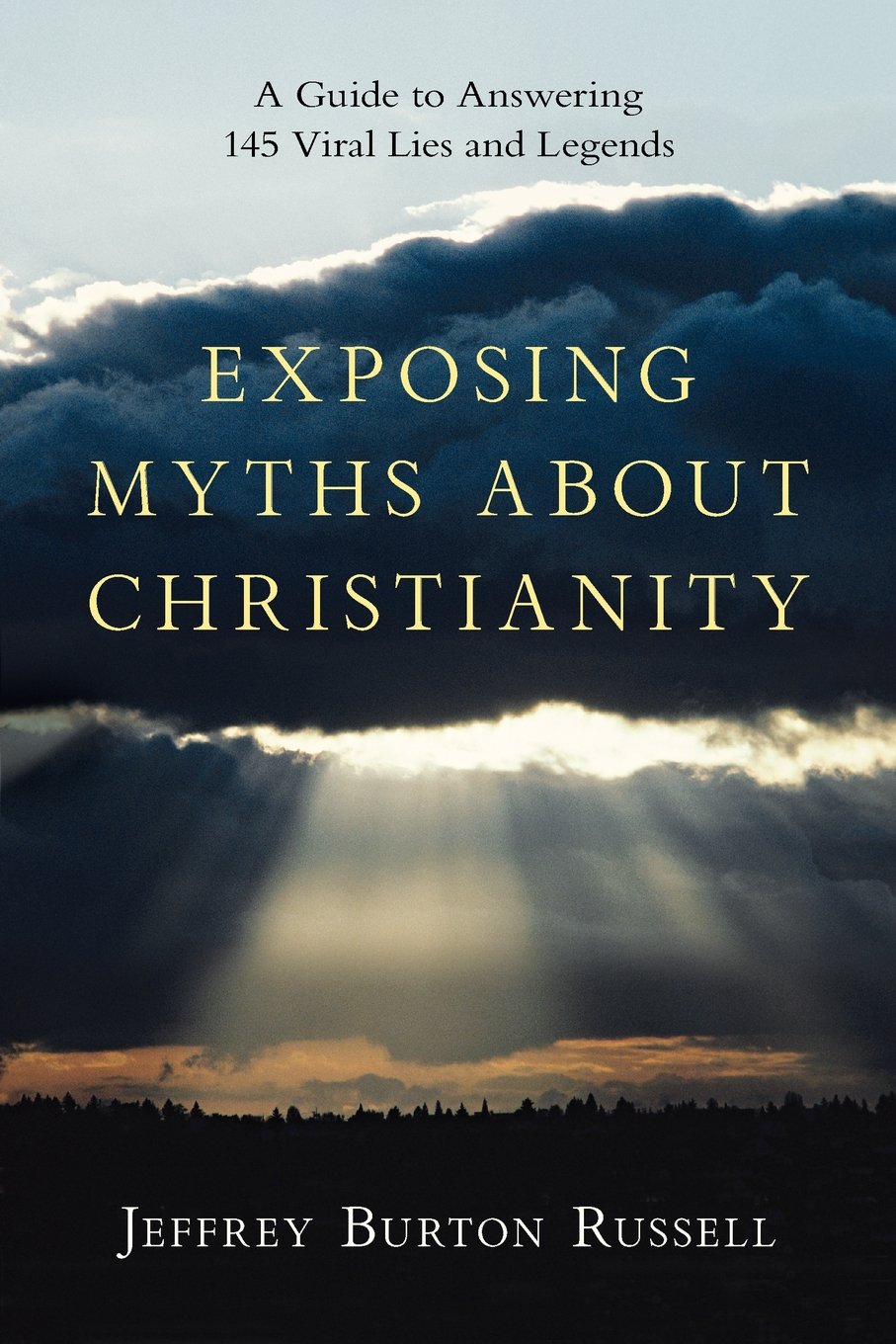
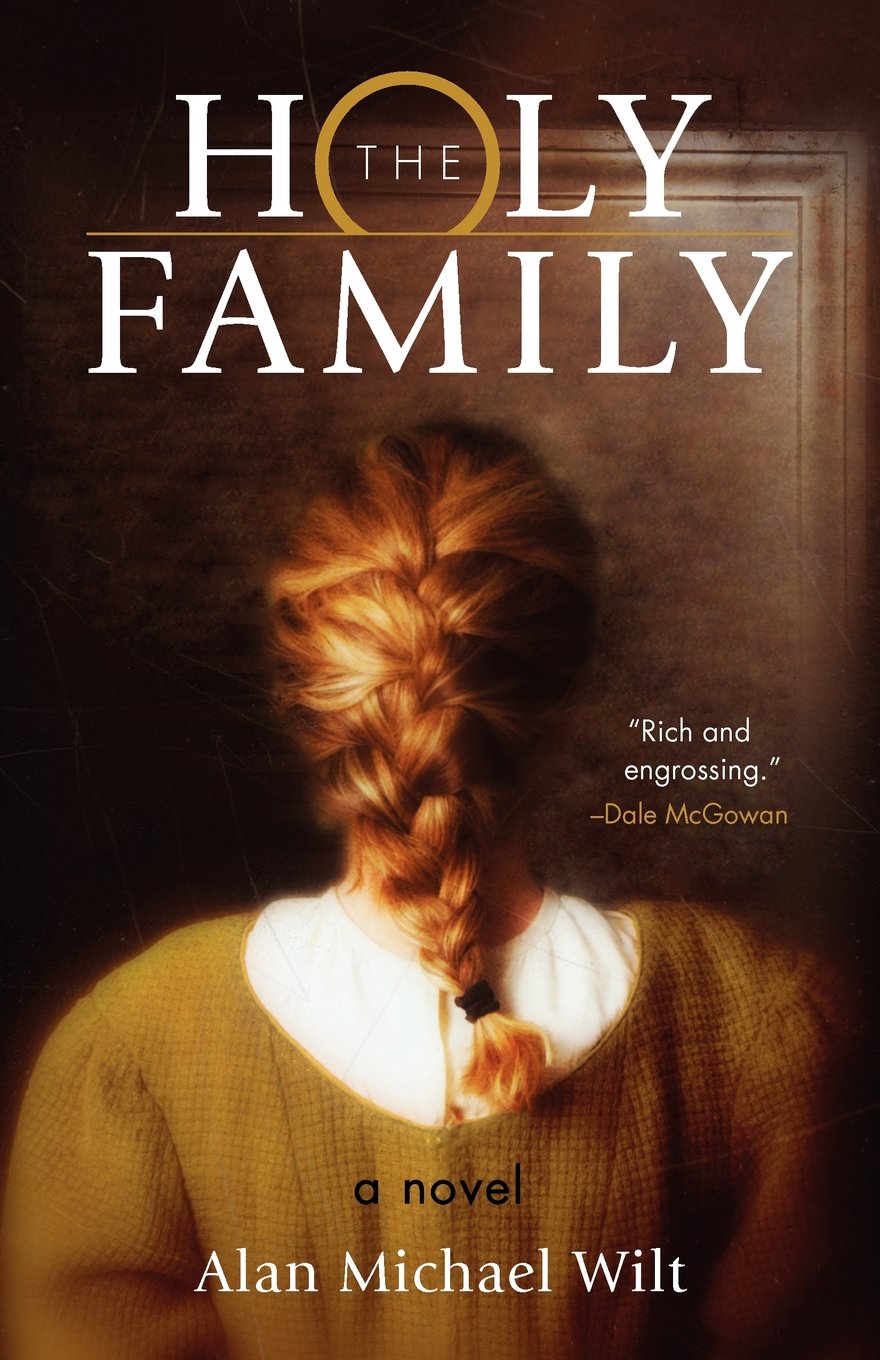
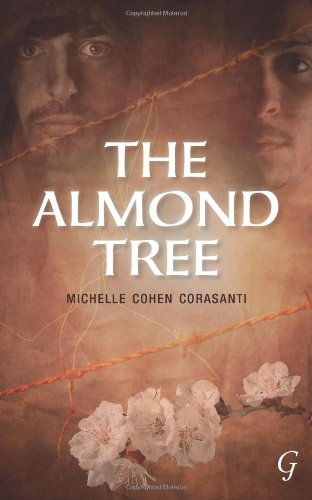
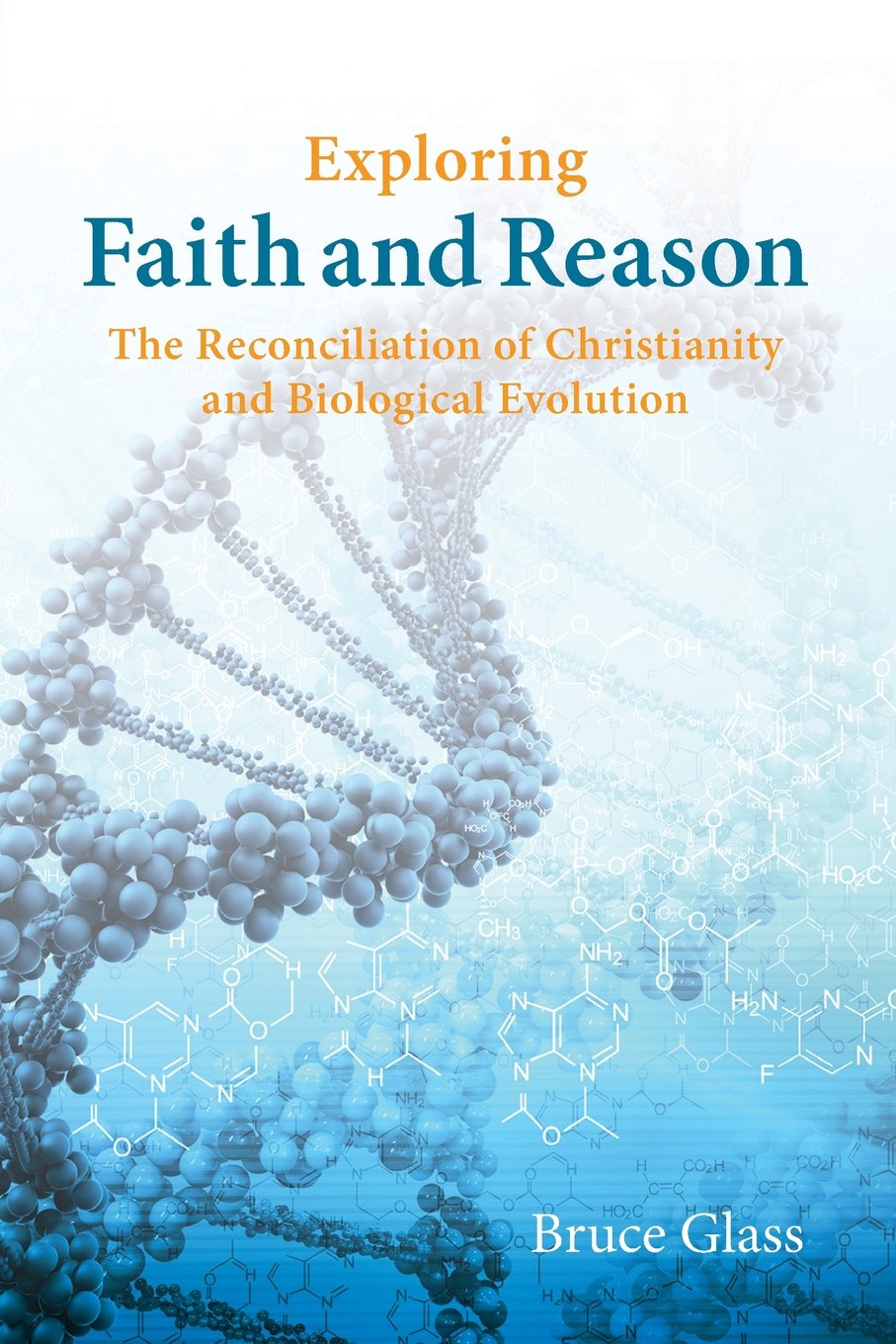
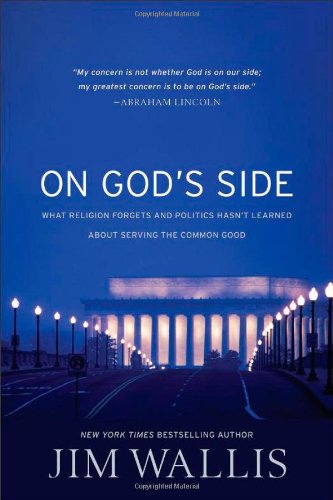
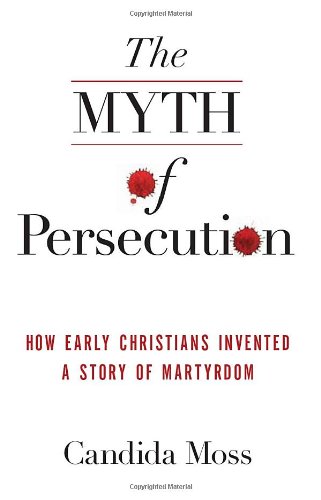

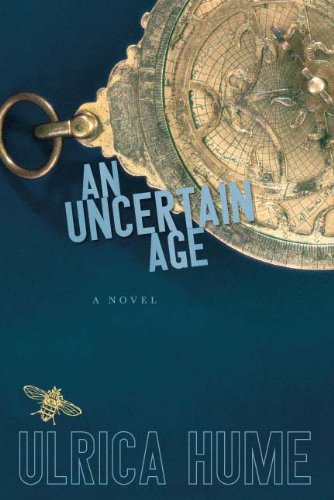
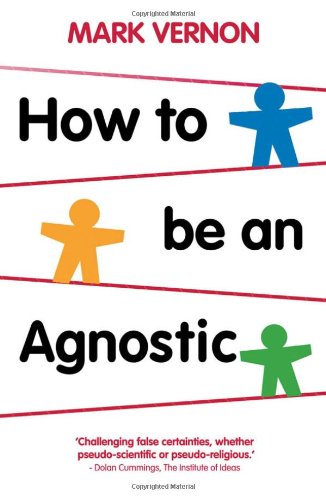
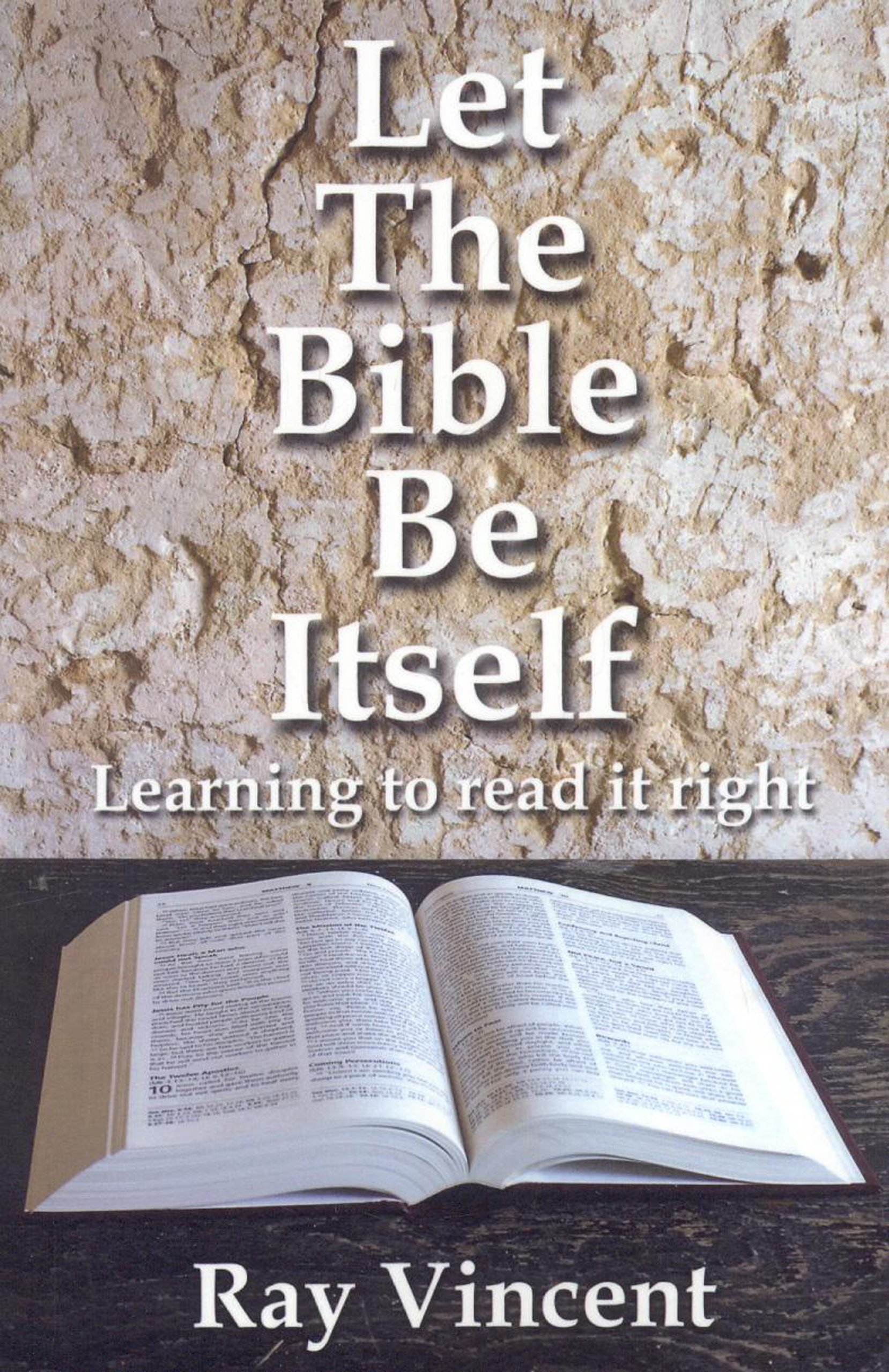
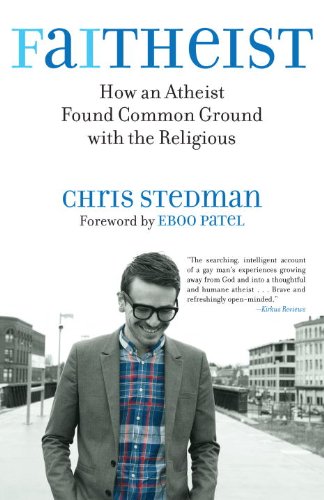









 354 Circles
354 Circles
 603 Goodreads Friends & Fans
603 Goodreads Friends & Fans

 Hello! I'm an author, historical Jesus scholar, book reviewer, and liberal Christian, which means I appreciate and attempt to exercise the humanitarian teachings of Jesus without getting hung up on any particular supernatural or religious beliefs.
The Bible is a magnificent book that has inspired and spiritually fed generations for thousands of years, and each new century seems to bring a deeper understanding of life’s purpose. This is true of not only Christianity; through the years, our age-old religions are slowly transforming from superstitious rituals into humanitarian philosophies. In short, we are growing up, and I am thrilled to be riding the wave.
I avidly read all thought-provoking religion titles. New authors: I'd love to read and review your book!
Hello! I'm an author, historical Jesus scholar, book reviewer, and liberal Christian, which means I appreciate and attempt to exercise the humanitarian teachings of Jesus without getting hung up on any particular supernatural or religious beliefs.
The Bible is a magnificent book that has inspired and spiritually fed generations for thousands of years, and each new century seems to bring a deeper understanding of life’s purpose. This is true of not only Christianity; through the years, our age-old religions are slowly transforming from superstitious rituals into humanitarian philosophies. In short, we are growing up, and I am thrilled to be riding the wave.
I avidly read all thought-provoking religion titles. New authors: I'd love to read and review your book!
 Hi! While Lee writes the articles and reviews the books, I edit, organize, and maintain the blog. The views expressed here are Lee's but I'm his biggest supporter! :-)
Hi! While Lee writes the articles and reviews the books, I edit, organize, and maintain the blog. The views expressed here are Lee's but I'm his biggest supporter! :-)
Connect With Me!